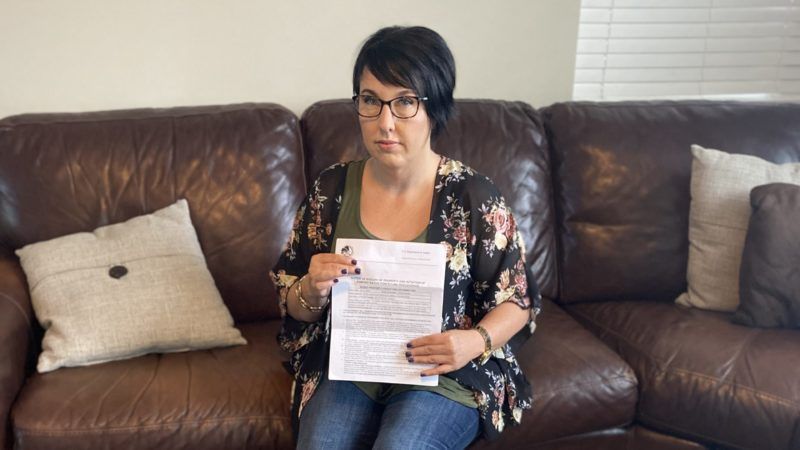DEA to Return $43,000 It Seized From Tampa Woman at Airport
The DEA dropped its attempt to keep the money roughly two months after the woman joined a class-action lawsuit challenging cash seizures at airports.

The Drug Enforcement Administration (DEA) will return more than $43,000 it seized from a Tampa woman at an airport after she joined a class-action lawsuit challenging the agency's practice of using civil asset forfeiture to confiscate cash from travelers.
The DEA seized $43,167 from Stacy Jones last May as she was trying to fly home to Tampa, Florida, from Wilmington, North Carolina. Jones says the cash was from the sale of a used car, as well as money she and her husband intended to take to a casino.
Jones is now a named plaintiff in a class-action civil rights lawsuit filed in January by the Institute for Justice, a public interest law firm. Although it is legal to fly domestically with large amounts of undeclared cash, the Institute for Justice lawsuit claims that the DEA and the Transportation Security Administration (TSA) have a practice or policy of seizing currency from travelers at U.S. airports without probable cause simply if the dollar amount is greater than $5,000. This practice, the suit argues, violates travelers' Fourth Amendment rights.
In a Nov. 12 letter to Jones' attorney, the DEA announced it would be returning all of Jones' money.
"Getting my money back is a big relief, but DEA never should have taken it in the first place," Jones said in an Institute for Justice press release. "In going through this nightmare, I found out that I'm not the only innocent American who has been treated this way. I hope that my continuing lawsuit will end the government's practice of treating people flying with cash like criminals."
Under civil asset forfeiture laws, police and prosecutors can seize property when that property is suspected of being connected to criminal activity, even if the owner is never charged or convicted of a crime. Law enforcement groups say the practice allows them to disrupt organized crime, like drug trafficking, by targeting its illicit proceeds.
However, civil liberties groups say civil asset forfeiture has too few procedural protections for property owners and creates perverse incentives for police to seize cash based on mere suspicion.
Reason reported on Jones' case in September, when she joined the class-action suit as a plaintiff:
After flying from Tampa to North Carolina for a casino reopening last May, Stacy Jones and her husband had dinner with friends, who were interested in buying a car the couple owned. They paid for it in cash. When the couple had to cut their trip short because of a death in the family, Jones put that money, along with cash she had for gambling, in a carry-on bag and headed for the airport in Wilmington, never considering the possibility that she was about to be robbed of $43,000 by the DEA.
A local sheriff's deputy, alerted to the presence of seizable cash by TSA screeners, grilled Jones and her husband about the money and deemed their explanation fishy, even after he called their friend, who confirmed the car purchase but was unable to say exactly how many miles were on the odometer. The deputy called in two DEA agents, who interrogated the couple some more and then announced that they were seizing the money based on their suspicion that it was related to drug trafficking.
One of the other named plaintiffs in the lawsuit, Terrence Rolin, a 79-year-old retired railroad engineer, had his life savings of $82,373 seized by the DEA after his daughter, Rebecca Brown, tried to take it on a flight out of Pittsburgh with the intent of depositing it in a bank. After the case went public, the DEA returned the money.
In 2016, a USA Today investigation found the DEA seized more than $209 million from at least 5,200 travelers in 15 major airports over the previous decade.
A 2017 report by the Justice Department Office of Inspector General found that the DEA seized more than $4 billion in cash from people suspected of drug activity over the previous decade, but $3.2 billion of those seizures were never connected to any criminal charges.
"We are glad that Stacy will get her money back, but it is shameful that federal agents keep targeting innocent flyers at our nation's airports," Institute for Justice senior attorney Dan Alban said. "We are going to keep fighting to end TSA's and DEA's unconstitutional and unlawful practices of seizing people and their cash without reasonable suspicion or probable cause."


Show Comments (62)